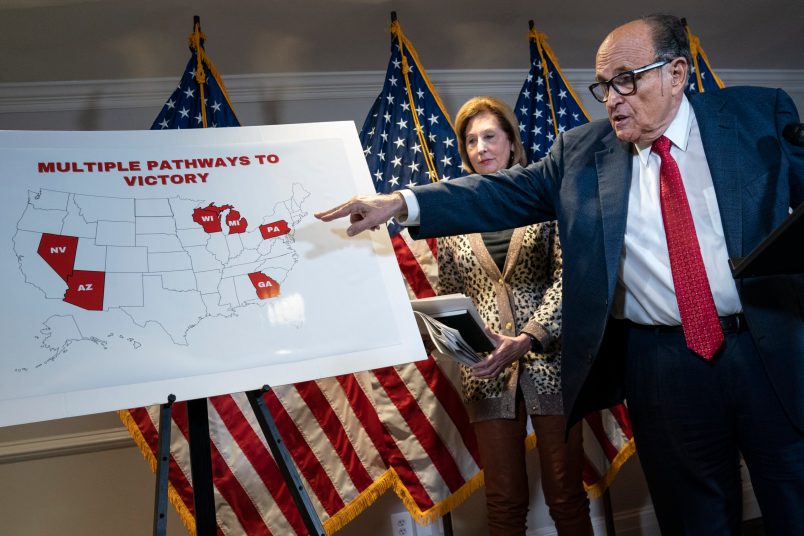This and other articles are among the first I’ve seen that make me think there will be prosecutions of individuals involved in the attempted 2020 presidential election coup. This one is from the Post and reports a new round of subpoenas and what appear to be court-ordered searches of various individuals involved in the “fake elector” scheme. Let me note a couple points about that part of the coup conspiracy.
First: I continue to be surprised that this is the focus. I don’t discount the seriousness of the offense. But it seems somewhat down the list of offenses relative to other things that happened. As I noted on the podcast today, it’s not like anyone didn’t know as a factual matter who the real electors were. Biden won Wisconsin. So his electors were the electors. Period. No one was going to be confused. The point, at least as I understand it, was to create a patina of procedural legitimacy to enable some future judge or executive or legislative branch official to accept these fake electors as real. Again, that’s pretty bad. But is it as bad as pressuring state officials to reject the results of the elections or “find” fake votes? I’m not so sure. The issue, I suspect, is that in this case various individuals were making formal attestations, signing documents, swearing oaths that were false. They were often false claims made to the United States government. So these bad acts trigger specific statutes around which prosecutions can be built, even if the substantive actions aren’t the most serious in the whole coup conspiracy.
Second: The DOJ is now escalating its claims that the Jan. 6th Committee is stymieing and endangering its prosecutions, particularly the seditious conspiracy charges against the Proud Boys and other violent domestic extremist groups. All of this strikes me as the weakest kind of blame-shifting crap.
First of all, criminal prosecutions are not more important than congressional investigations. Going on forty years ago, because of an appellate win for Ollie North, Congress became much more cautious about the use of it own investigatory powers. Basically, don’t risk doing anything that could complicate or endanger a DOJ prosecution. That was a bad misjudgment. As I’ve argued many times, for wrong-doing in the political sphere exposure and public accountability is often more important than the prosecution of specific crimes. The decision to leave the entire Russia probe to a narrowly framed criminal investigation is a good example of that. At the end of the day, most of the details of the investigation turned out to be none of the public’s business. Huge mistake and error.
Beyond this, this simply isn’t how the different branches of government talk to each other. The DOJ is asking for all of the committee’s work product, all the interviews, depositions, etc. This is the kind of request you make if you’re trying to force a “no” which you can then make a public stink about. While it is often overdone, each branch is rightly jealous of its independence and prerogatives. Each goes to great lengths to ensure that it not treated as subservient to another. The way these things work is how the committee itself went about it when it needed material from the executive branch: the requesting branch says what it wants and then there’s a negotiation between the two branches. The committee members have made very clear they want to have those discussions — but won’t hand over everything just because the DOJ demands it.
On its face it’s not clear why the committee’s depositions put the DOJ’s prosecutions in any jeopardy. It is not at all credible that the committee has any interest in endangering those prosecutions or that it would be cavalier about those risks. Indeed, the committee has to a fault made clear that a core focus of its hearings is to press the DOJ to act. It’s the committee which has demonstrated that it is playing for keeps. They don’t have anything to prove. It’s the DOJ which has at best taken a cautious and — how should we put it — highly deliberate approach. It has something to prove, not the committee.
There may be a deeper story we don’t know. But on its face it looks like the committee’s hearings are pushing the DOJ to move more aggressively. DOJ officials are now somewhat lamely tossing out these complaints to make it seem like it was the committee slowing them down all the time.
Don’t buy it.
The good news is that whining aside the DOJ investigations do appear to be escalating.


 Members-Only Article
Members-Only Article
